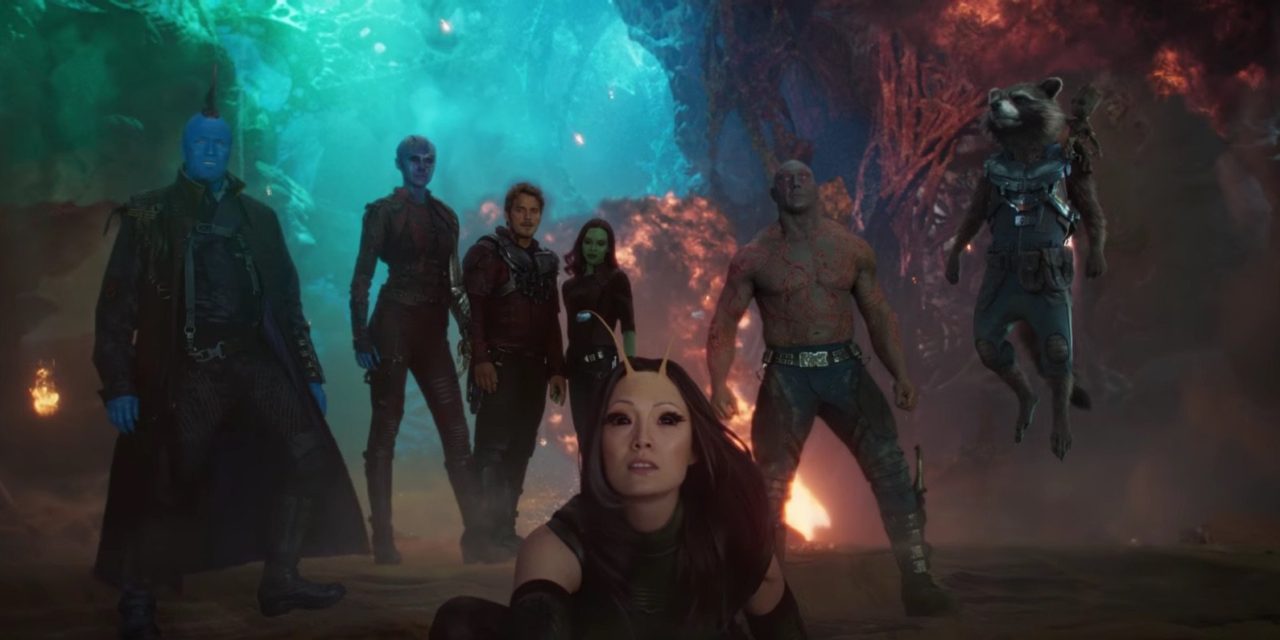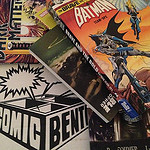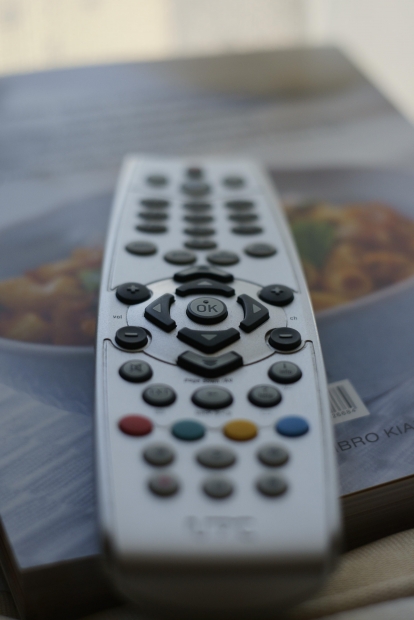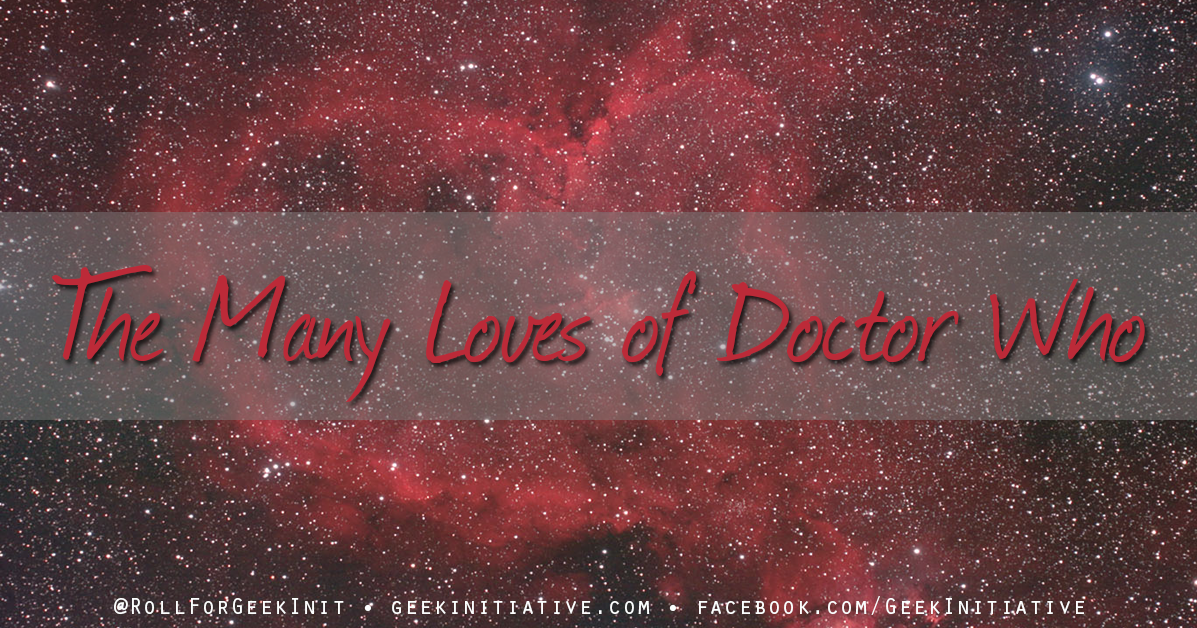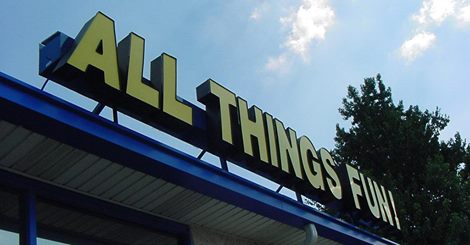What do a talking raccoon, baby tree, cybernetically enhanced assassin, dancing space captain, and a blue criminal with a metal mohawk have in common? They’re all victims of abuse in Guardians Of The Galaxy, Vol. 2.
A Galaxywide Cycle
Guardians Of The Galaxy, Vol. 2, despite being one of the brightest and silliest films in the Marvel Cinematic Universe, also portrays a tragic picture of child abuse: a cycle that begins with crappy parenting and weighs on our heroes throughout the whole of the galaxy. It seems even running away from your home planet and becoming an intergalactic superhero can’t keep you safe from the sh*tty things your dad did to your mom. Volume 2 might be about saving the galaxy, again, but it’s more important message may be how normal, Earth-bound, non-superheroes can save themselves.
Warning: Awesome Spoilers For Guardians Of The Galaxy, Vol. 2
Before we can do that, though, we need to acknowledge and understand the galaxy-spanning cycle of abuse that stains every character in Volume 2, from its lonely beginning to its violent end.
Ego
“…it broke my heart to put that tumor in her head.”
In Ego, the living planet, James Gunn depicts the ultimate shitty dad. He literally has a lover on every planet, skipping out on each family after the fun part is over, reconnecting with his children only when they might have something to offer, and tossing each child aside when they fail to live up to his expectations. He can’t even be bothered to pick up the kids he eventually kills, he hires someone else to do that.
When Ego finally does come across someone he believes he loves, an inconvenience that threatens his selfish motives, he uses his significant power to plant a tumor into her brain and leaves his son, Peter, alone, to watch his mother, Meredith, die in agony. Sure, he feels a bit bad about it but nothing that a human sleeping pill and the lyrics to a song can’t cure. And in the end, it was really their fault for getting in his way and pissing him off.
Like all abusive fathers, Ego can’t be bothered with the mess he leaves behind. His work is too important for that.
Starlord
“Well of course I have issues. That’s my freaking father!”
Peter Quill is clear example of textbook victim of domestic abuse. Abandoned by his father, he retreats into fantasy as he tells other children that David Hasselhoff is his real dad and is far too busy to spend time with him. From there, it only gets worse. Though we don’t know it until Volume 2, Peter watched his father kill his mother. Ego may not have beaten Meredith Quill, and like all abusers, claimed his actions were driven by love, but the cancer he placed in her brain took away her dignity and eventually her life, which is no different than if he had beaten her.
So, once again, Peter retreats, running away from his mother’s death, and, this time, into an actual fantasy: fantasy that involves kidnapping, child labor, and people threatening to eat him if he doesn’t behave but still a better alternative than accepting what happened to his mother.
Becoming a Ravager allows Peter to create a new persona, Starlord, a rebellious legendary outlaw who keeps all the things he loved about his childhood while forgetting all the things that hurt so much.
This is most evident in his Walkman, constantly replaying Volume 1, replaying memories of his healthy mother, and his refusal to open her final gift, the music given to him after her death. Instead of acknowledging what happened, he simply refuses to grow up.
It also keeps Starlord from having any meaningful relationship. He sleeps with any sentient lady he can talk into bed but forgets about them immediately after. Any real connection with another woman, as we see when he saves Gamora’s life, only reminds him of his loss. He’s trapped, alone, no matter how many people are around him, with only two ways of expressing himself: dancing, as taught to him by his mother, and violence, as taught to him by his father.
Rocket and Yondu
“…you push away anyone who’s willing to put up with you because just a little bit of love reminds you how big and empty that hole inside you actually is.”
There are never any good reasons for hurting people. Being abused as a child doesn’t exonerate you from abusing others, and this is the problem with Rocket and Yondu.
In what must be the best acted scene in Volume 2, between a blue painted man and a CGI raccoon, we learn that as children Rocket and Yondu were both taken by people and forced into a painful reality. Yondu was sold into slavery by his own parents while Rocket was illegally experimented on by uncaring scientists. In fact, Rocket has been so abused as a child that he can’t even be touched without reacting violently and the best joke he can think of is stealing the body parts of handicapped people and laughing at them.
Sadly, both Yondu and Rocket knowingly use their past experiences to justify the pain they inflict upon others and, like so many before them, perpetuate the cycle of abuse.
We learn in Volume 2 that Ego paid Yondu to kidnap and traffic children for him. When Yondu learned that Ego was killing the children, he stopped delivering them and took a young Starlord under his wing. Even then he heaped emotional abuse on Peter, threatening to eat him, until Peter eventually ran away. It is only long after the fact, when many lives have been lost, that Yondu realizes what he’s done.
We see more hope in Rocket, playing the dutiful parent to Baby Groot, but, like Yondu, his actions put lives in danger and push people away.
Violence, and in turn abuse, is not inherent, it is taught. If all we learn as a child is violence, like Rocket and Yondu, then that’s all we know to give back. It’s how they can kill an entire ship full of people, bodies pouring down around them, and laugh while doing it.
Gamora and Nebula
“All you wanted was to win. All I wanted was a sister.”
Nebula, sister of the assassin Gamora and daughter of the mad titan Thanos, also relates a story of her childhood in Volume 2.
After her and Gamora were kidnapped by Thanos, he trained them to be living weapons. For this purpose, he forced them to fight each other. In every battle, Gamora prevailed. As a result, Thanos would violently remove and replace a piece of Nebula with machinery. Doing this so that Nebula could be “as good as her sister”. Again and again this happened, Gamora never showing mercy in the face of their tyrant father and Nebula always paying for it.
That’s why Nebula spends most of Volume 2 trying to kill her sister and why, in return, Gamora shows no mercy. They didn’t just learn to hate each other. Their hatred for one another was bred into them.
This galaxy is just chock full of crappy parents.
Mantis
“Well, then I am certainly grateful to be ugly.”
Absolutely no one in Guardians Of The Galaxy, Vol. 2 receives more abuse than Mantis. Found by Ego as a child, Mantis was isolated from the rest of the universe and raised alone on Ego’s planet.
This was not a rare act of altruism for Ego. Mantis has powers that let her feel the feelings of others and, in turn, affect them. Ego kept Mantis because she could help him fall asleep. Her entire life is a period of servitude punctuated by abuse disguised as love. So much so that she can no longer tell the two apart.
Mantis’ most fulfilling relationship in the film is with Drax. A relationship that starts with him trying to get her bit by Rocket. Throughout the remainder of the film he repeatedly calls her ugly, acts as if her very visage makes him sick, shows little regard for her safety, and refers to her as weak. Yet Mantis has no reason to find any of this odd or cruel. She inherently trusts everyone, even when they hurt her, and is vocally grateful for the abuse. Though perhaps it is not that Mantis can no longer differentiate between abuse and love. Perhaps the abuse is simply preferable to loneliness.
Drax
“All you people do is yell at each other! You’re not friends!”
“No. We’re family.”
As mentioned, no one is more abusive in Volume 2 than Drax. And not just to Mantis. He calls Rocket a rodent, Gamora a whore, Groot a dumb tree, and makes up words just so he can argue with Starlord. In the case of Drax, abuse is the only way he knows how to show love.
The closest we can come to understanding Drax a scene involving him and Mantis. They are sitting on Ego’s planet, watching a beautiful sunset over clear pools of water. Drax explains to Mantis she is ugly and that is a good thing. When you are ugly and someone loves you, you know they love you for who you are. Whereas, he believes, beautiful people never know who they can trust. He then goes on to talk about his daughter, who was murdered by Ronin, and grows silent and stoic. When Mantis touches him, she begins to weep uncontrollably.
Unlike everyone else in Volume 2, Drax already had a family he loved. Yet he cannot bring himself to weep for them, no matter how he feels. Perhaps loving another would be a betrayal to his family’s memory. Or he simply cannot bring himself to trust a new family. Where he sees beauty, he feels only loss. So instead of saying what he feels, he insults those closest to him.
Or, perhaps, it is all just a way of making his death easier. Everything Drax loved is gone. Taken from him. And he further separates himself from those he calls family with insults and abuse. He only seems most joyous when he is courting death. He willingly leaps into the mouth of an interdimensional monster, dangles himself through the breached hull of a crashing spaceship, and seems indifferent as he is swallowed alive by the very planet he’s standing on. He isn’t willing to risk anyone else’s life. He doesn’t think twice before holding Mantis above him as he sinks into the planet’s soil and he demands to know where Starlord is even as the planet dissolves around him. Yet his own life seems damn dispensable, as if he’s hoping to rejoin the family he lost.
Groot
“I am Groot.”
I know what you’re thinking. There’s no way anyone would abuse Baby Groot. He’s too adorable to kill. Sadly, in a film with strong, underlying themes about child abuse, not even the babiest of Groots are safe.
Even if we overlook that his proper family, the Guardians of the Galaxy, put his life in danger by taking him on dangerous missions to fight monsters, The Ravagers force him to wear uncomfortable clothes, drench the child in beer, call him names, push him around, and make him watch as they murder people by tossing them into the void of space. The results are almost immediate. He learns violence and then he perpetrates violence.
At one point, he appears with a severed toe and Yondu makes it perfectly clear that there is no way he could have gotten it without taking it from someone. Only a few minutes later, Groot helps murder an entire ship and even kills someone himself.
Baby Groot murdered someone by dropping them off a catwalk.
Breaking the Cycle
“He may have been your father, boy, but he wasn’t your daddy. I’m sorry I didn’t do none of it right. I’m damn lucky you my boy.”
Yeah. I know. This is all pretty depressing. How does a movie where they kill the bad guys with friendship and love have such a dark theme? And how can any movie make it better? Aren’t the Guardians – Starlord, Gamora, Drax, Rocket, Nebula, Mantis, Yondu, and Groot – aren’t they all just… broken?
This is where you should Google “Mr. Blue Sky”, by the Electric Light Orchestra, and let it cheer you up a bit. Because, just like the Guardians of the Galaxy, there is a happy ending and Volume 2 makes it very clear what that is.
In the most touching scene in the film, Yondu sacrifices himself to carry Starlord to safety. He accepts that his own pain was never an excuse to hurt others, that what he did to Starlord and the other children was wrong, and he gives his life in atonement.
This theme of forgiveness and love carries through for the rest of the film, saving each character.
Ego, who is unable to acknowledge that he did anything wrong, crumbles to dust.
Rocket apologizes to Starlord, in so many words, and Gamora apologizes to Nebula, who finds she is only able to move on after she saves Gamora’s life, instead of what she’s been trying to do.
Drax begins to heal by cuddling Baby Groot as he sleeps, nurturing him, and admitting to himself that Mantis is beautiful (even though he follows it up with an insult).
And Starlord is only able to stop his father and begin a stronger relationship with Gamora by moving past what Ego did to his mother, forgiving Yondu for threatening to eat him, and focusing on why he loves his friends so much.
The morality of it all isn’t perfect but I believe the sentimentality of the film is.
We all have shitty parents, we’ve all been hurt, but it only gets better when we love each other. Or, I guess, to put it another way… We are Groot.
What did you think about the theme of abuse in this movie? Please share your comments below.

